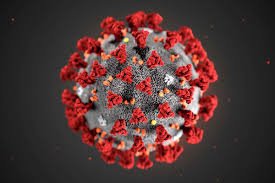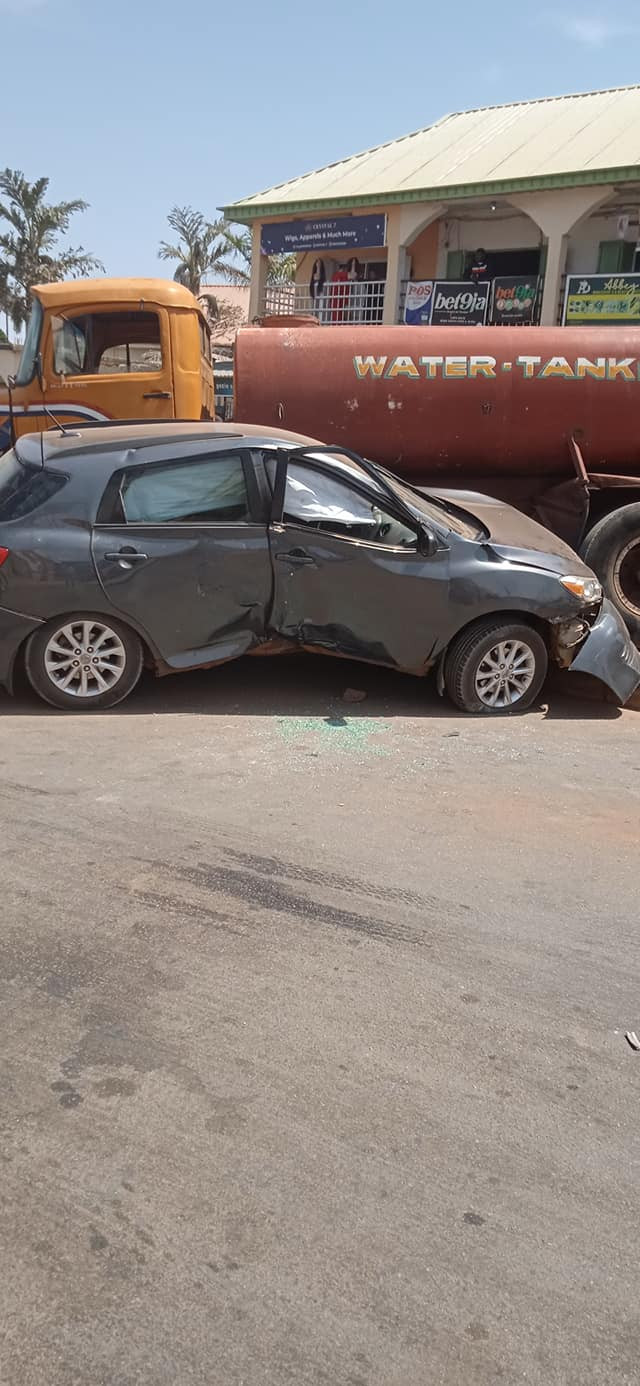Breaking News
Corona Cases Surge To 4,232,582
Coronavirus cases surged to 4,232,582 with 54,430 new cases while 285,763 deaths with 2030 news deaths reported across the world on Monday.

On the other hand 1,517,557 patients recovered from the pandemic, the Worldometer stated.
President Vladimir Putin on Monday said stay-at-home orders for most workers in Russia would end thisweek even as the country registered a record increase in new coronavirus infections.

With more than 220,000 confirmed cases and a steady surge of more than 10,000 new coronavirus cases every day, Russia now ranks fourth in a global tally of total infections after the United States, Spain and Britain.
Despite virus figures that suggest the pandemic in Russia shows no sign of slowing, Putin announced that the country´s “non-working” period to slow the pandemic would end on Tuesday.
The move brought uncertainty to the economy already grappling with low oil prices, with business owners struggling to pay full salaries to employees while shutting their doors to customers. “Starting from tomorrow, May 12, the national period of non-working days will be over for all sectors of the economy,” Putin said during a meeting with officials responsible for the country´s virus response.
The president said that Russia´s regions, which were given leeway to introduce different anti-virus measures, will be able to keep in place any restrictions necessary to contain the pandemic.
The president´s announcement, which was broadcast on state-run television, comes after Russia registered a record number of daily cases with more than 11,000 people testing positive over the last 24 hours.
Health officials Monday said Russia has a total of 221,344 coronavirus infections, with around half of the total cases in the capital. Putin on Monday said that Russia had used the self-isolation period to prepare its healthcare system, increasing the amount of hospital beds and saving “many thousands of lives”. This “allows us to begin a gradual lifting of restrictions”, he said.
“It is in the interest of all of us for the economy to return to normal quickly,” Putin said, adding that construction, agriculture and energy should be restarted first. “The epidemic and associated restrictions have had a strong impact on the economy and hurt millions of our citizens,” he told officials during the meeting. As people begin going back to work, mass events are still suspended and “strict sanitation demands” must be observed, Putin said.
Meanwhile, Lower skilled workers in parts of Britain appear at greater risk of dying from coronavirus than white collar employees, according to an analysis of official figures published Monday.
The finding by the Office for National Statistics (ONS) came after Prime Minister Boris Johnson said Sunday that construction and manufacturing workers could return to work but recommended office staff still work from home. The move is the first change to a seven-week-old nationwide lockdown introduced to curb the spread of the virus, which the government hopes to introduce in phases.
But opposition parties, unions and business leaders said there was a lack of clarity about the new recommendations — and voiced concerns about the safety of people returning to work. The devolved governments in Scotland and Wales have also said they would keep the lockdown in force because of continued fears about high transmission rates.
Britain has been one of the worst-hit countries in the global pandemic, with the government officially recording nearly 32,000 deaths of people who had tested positive for COVID-19.
The actual number of deaths from the virus is far higher, with the ONS — which tallies all deaths and releases weekly updates for periods up to two weeks prior — finding the 32,000 toll was reached in late April.
The ONS reviewed nearly 2,500 deaths in England and Wales linked to COVID-19 up to April 20 and discovered “men working in the lowest skilled occupations had the highest rate of death”. The assessment indicated taxi drivers and chauffeurs, bus and coach drivers, chefs, and sales and retail assistants had died in greater proportions to those in other occupations.
Men and women working in social care, which includes care workers and home carers, both had “significantly raised rates of death” involving the virus. But healthcare workers such as doctors and nurses were not found to have higher death rates.
Meanwhile, Kosovo´s caretaker Prime Minister Albin Kurti said Monday he was in self-isolation after an official in his government “had close contact” with a person who tested positive for the novel coronavirus. “Today is the first day when I will not go to work at the Prime Minister´s Office,” Kurti, 44, wrote in a post on his Facebook page.
Without specifying how long the quarantine would last, Kurti said he would stay in his apartment until test results were available for the official from the Ministry of European Integration who had contact with the infected person.
“Samples have been taken and we are waiting for the result,” Kurti said. Meanwhile, China reported a new cluster of coronavirus cases in the city of Wuhan. Five new infections were confirmed in one district of Wuhan, the city believed to be ground zero for the global pandemic.
The city in central Hubei province only emerged from lockdown roughly four weeks ago, after weeks of dwindling cases. Production of the world´s longest-running cartoon and a mainstay of the Japanese weekend has been interrupted by the coronavirus, forcing the broadcast of re-runs for the first time in decades.
“Sazae-san”, which first aired in 1969, revolves around the life of Mrs Sazae, a cheerful but klutzy full-time housewife who lives with her parents, husband, son, brother and sister. The 30-minute episodes aired Sunday nights are very popular, and for many in Japan have come to denote the end of the weekend.
But the cartoon, recognised as the longest-running animated TV series by Guinness World Records, has been hampered by the outbreak of the virus, with animation dubbing halted to keep staff safe, broadcaster Fuji Television Network said. “We will halt broadcast of new episodes of ´Sazae-san´ for the time being from May 17 and instead air re-runs,” it announced on Sunday. The network said upcoming broadcasts would be episodes from two years ago, adding it would announce a date for the resumption of new episodes as soon as possible.
Meanwhile, New Zealand will phase out its coronavirus lockdown over the next 10 days after successfully containing the virus, although some restrictions will remain, Prime Minister Jacinda Ardern announced Monday.
Ardern said that from Thursday shopping malls, restaurants, cinemas and playgrounds will reopen — with the country moving to Level Two on its four-tier system. The 39-year-old leader warned “none of us can assume COVID is not with us” but said New Zealand currently had only 90 active cases after a seven-week lockdown. “Your efforts New Zealand have got us to this place ahead of most of the world and without the carnage that COVID has inflicted in many other places,” she said in a televised address.
“But there are risks ahead, so please be vigilant.” New Zealand, with a population of five million has recorded 1,147 coronavirus cases, including 21 deaths. The number of new cases has been in single digits since mid-April, with three new infections recorded on Monday.
Bars will not be back in business until May 21, giving them extra time to ensure they can keep patrons properly separated. Ardern said the move to Level Two would be reassessed after two weeks, with further easing possible depending on developments.
Meanwhile, the United States recorded 776 coronavirus deaths in the past 24 hours, bringing the total to 79,522, according to the real-time tally by Johns Hopkins University at 8:30 pm Sunday (0030 GMT Monday).
The figure was the lowest daily tally since March, with 24-hour totals in recent weeks ranging from 1,000 to 2,500. The country — hardest hit by the pandemic in terms of the number of fatalities — has now confirmed a total of 1,329,072 cases, the Baltimore-based school reported.
Meanwhile, Iran on Monday warned of a setback in its efforts to contain the novel coronavirus unless health protocols are observed more closely, as it reported 45 new COVID-19 deaths. The southwestern province of Khuzestan has become the new focal point of Iran´s COVID-19 outbreak with authorities re-imposing strict measures to halt its spread. “We have regressed in Khuzestan due to the increase in hospitalisations and not observing health protocols,” Deputy Health Minister Alireza Raisi said in televised remarks. “This can happen to any other province if we are not careful,” he added, noting that tighter measures would be re-imposed in other places too if needed. Authorities have shut down state bodies, banks and non-essential businesses again in nine of Khuzestan´s counties.
Meanwhile, India’s federal health ministry Monday morning said 97 new deaths due to COVID-19, besides fresh 4,213 positive cases, were reported since Sunday in the country, taking the number of deaths to 2,206 and total cases to 67,152. “As on 8:00 am (local time) Monday, 2,206 deaths related to novel coronavirus have been recorded in the country,” reads information released by the ministry.
According to officials, so far 20,917 people have been discharged from hospitals after showing improvement. “The number of active cases in the country right now is 44,029,” reads the information. Monday marks the 48th straight day of the ongoing lockdown across the country announced by the central government to contain the spread of the pandemic.
Meanwhile, Israel on early Monday confirmed five additional fatalities due to the novel coronavirus, bringing the country’s death toll to 252. According to a statement by the Health Ministry, total cases in the country reached 16,477 after healthcare staff diagnosed an additional 23 patients.
Noting that 74 patients were in critical condition, the statement added that at least 11,430 had recovered and were discharged from hospitals so far. Israel began taking measures to stem the spread of COVID-19 in late February, initially barring the entry of non-residents arriving from virus hotspots and gradually imposing a near-total air travel ban. It also closed all educational institutions and prohibited citizens from leaving their homes except to buy food and medicines or visit a hospital. A slowdown in new cases over the past few days prompted Tel Aviv to start easing restrictions on movement.






